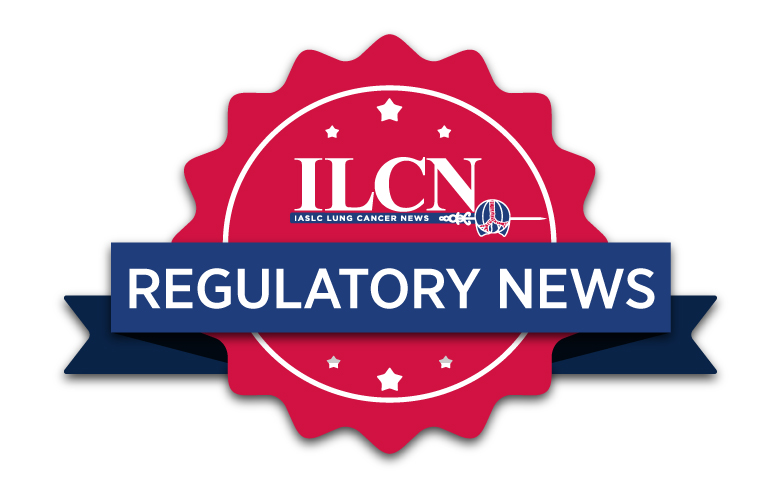European Commission Approves Alectinib as First Targeted Treatment for ALK-positive Early-stage Lung Cancer

The European Commission recently approved alectinib monotherapy as adjuvant treatment following tumor resection for patients with ALK-positive non-small cell lung cancer (NSCLC) at high risk of recurrence. Data from the phase III ALINA trial, where alectinib demonstrated a 76% reduction in the risk of disease recurrence or death in people with resected ALK-positive NSCLC, supported the application.
“When it comes to early-stage ALK-positive NSCLC, surgery is not always enough as there remains a high risk of recurrence that leaves patients concerned about what’s to come,” said Professor Fabrice Barlesi, thoracic oncologist, Paris Saclay University and Chief Executive Officer of the Gustave Roussy Institute. “The magnitude of disease-free survival benefit observed in the ALINA study was unprecedented and consistent across all disease stages. The use of early ALK testing will help to identify patients that could benefit from this new treatment option.”
In the ALINA study, alectinib reduced the risk of disease recurrence or death by 76% (hazard ratio [HR]=0.24, 95% confidence interval [CI]: 0.13-0.43, p<0.0001) compared with platinum-based chemotherapy in people with completely resected IB-IIIA ALK-positive NSCLC. In an exploratory analysis, an improvement of central nervous system disease-free survival was also observed (HR=0.22; 95% CI: 0.08-0.58). See Adjuvant Alectinib for ALK+ NSCLC: An Interview with Dr. Benjamin Solomon for more discussion of the trial.
The US FDA approved adjuvant alectinib in this setting in April 2024.
US FDA Grants Priority Review of Osimertinib for Patients with Unresectable, Stage III EGFR-mutated Lung Cancer
Based on recently reported data from the phase III LAURA trial, the US Food and Drug Administration (FDA) has granted Priority Review of osimertinib for patients with unresectable, stage III EGFR-mutated NSCLC after chemoradiotherapy. If approved, osimertinib will be indicated for EGFR-positive patients whose tumors have exon 19 deletions or exon 21 (L858R) mutations. The agency also recently approved a Breakthrough Therapy Designation for osimertinib in this setting.
FDA grants Priority Review to applications for medicines that, if approved, would offer significant improvements over available options by demonstrating safety or efficacy improvements, preventing serious conditions or enhancing patient compliance. A Breakthrough Therapy Designation accelerates the development and regulatory review of potential new medicines intended to treat a serious condition and address a significant unmet medical need.
The LAURA trial showed osimertinib reduced the risk of disease progression or death by 84% compared to placebo (HR 0.16; 95% CI: 0.10-0.24; p<0.001) as assessed by blinded independent central review. Median progression-free survival (PFS) was 39.1 months in patients treated with osimertinib versus 5.6 months for placebo. Read more about the results: LAURA Trial Defines Role of EGFR-directed Therapy in Unresectable Stage III NSCLC.



